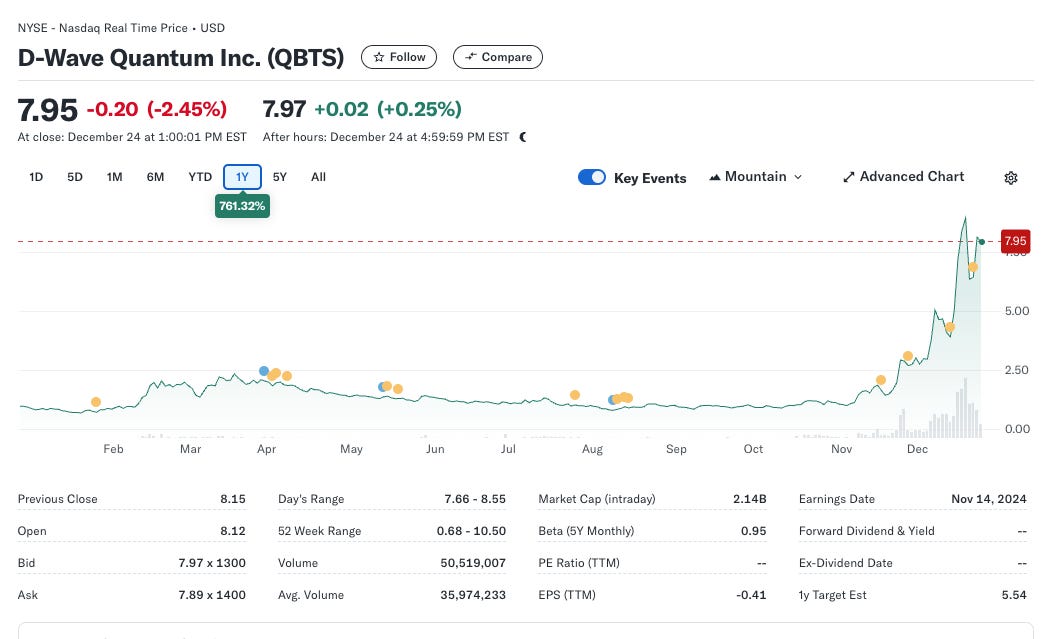Quantum Computing Part 1. Christmas Miracles & Multiverse Musings
quantum computing just launched a hype cycle of its very own...
Alphabet subsidiary, Google Quantum AI, ended the year on a high note with the announcement of their latest Quantum Computing (QC) chip, Willow, in this blog post on December 9 last.
According to the post, the Willow chip delivers two major achievements:
Willow can reduce errors exponentially as we scale up using more qubits. This cracks a key challenge in quantum error correction that the field has pursued for almost 30 years.
Willow performed a standard benchmark computation in under five minutes that would take one of today’s fastest supercomputers 10 septillion (that is, 1025) years — a number that vastly exceeds the age of the Universe.
That second achievement is what appears to have sparked a frenzy of excitement among investors and onlookers alike. After all, completing a computation in less than five minutes that would otherwise have taken an amount of time vastly exceeding the age of the Universe is a pretty amazing achievement, right?
The magic doesn’t stop there. Towards the end of the aforementioned blog post, the author, Hartmut Neven, founder and head of Google Quantum AI, tells us that his team’s latest work is in line with the idea that we live in a multiverse, a topic he has broached on multiple occasions in the past:
It lends credence to the notion that quantum computation occurs in many parallel universes, in line with the idea that we live in a multiverse, a prediction first made by David Deutsch.
News of this latest breakthrough saw parent company Alphabet’s share price rise over 6% into all time record high territory in the days that followed:
In completely unrelated developments, the share prices of four leading QC companies soared over the course of the past six weeks. Quantum Computing Inc, a startup operating in this space since 2018, saw its share price to soar from the <$1 ashes where’s it had been languishing all year to reach a high of $27.
The share price has since corrected downwards to $17, valuing the company at a cool $2.2 billion. Then there’s D-Wave whose share price went up ~8x giving it a market cap north of $2 billion…
Next up is Rigetti which did even better, achieving an ~11x surge, valuing it at north of $3 billion.
Last but not least, there’s IonQ, also listed via SPAC in 2021, and up a more modest 4.5x for a valuation of just under $10 billion.
What on earth is going on in the world of Quantum Computing? Let’s dig in…
Keep reading with a 7-day free trial
Subscribe to Semicon Alpha to keep reading this post and get 7 days of free access to the full post archives.






